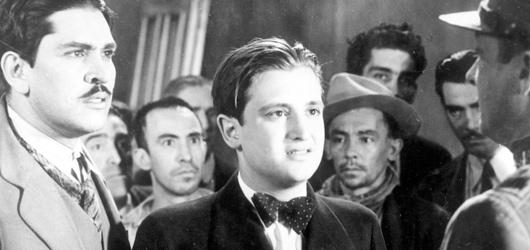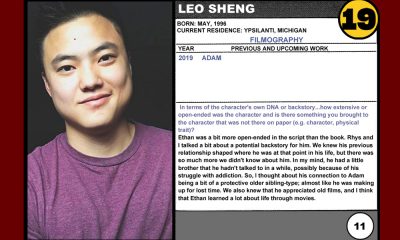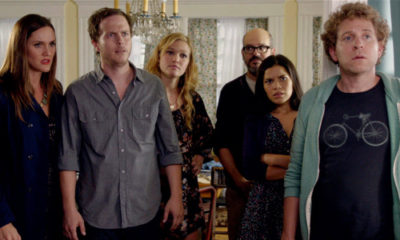Retro IONCINEMA.com
48th NYFF 2010: Fernando de Fuentes’ Mexican Revolution Trilogy
Fernando de Fuentes’ El Prisonero Trece (Prisoner 13) (1933), El Compadre Mendoza (Our Buddy Mendoza) (1934) and Vamanos con Pancho Villa (Let’s Go with Pancho Villa) (1936) are a trilogy in the sense of the tone, themes and historical context that they live in, but to be clear, they are comprised of separate narratives. What they have most in common are the themes of corruption and hypocrisy, both moral and political.
The New York Film Festival kicked off with its first press screenings for one of two repertory series under the festival’s “Masterworks” category. Fernando de Fuentes’ El Prisonero Trece (Prisoner 13) (1933), El Compadre Mendoza (Our Buddy Mendoza) (1934) and Vamanos con Pancho Villa (Let’s Go with Pancho Villa) (1936) are a trilogy in the sense of the tone, themes and historical context that they live in, but to be clear, they are comprised of separate narratives. What they have most in common are the themes of corruption and hypocrisy, both moral and political.

El Prisonero Trece focuses on Colonel Carrasco (Alfredo del Diestro). It’s a story of Carrasco vs. the revolutionaries vs. himself. There’s a lot of drinking, bumbling police, bribery, mistaken identity, unjust arrests and executions. The final act of this film unfolds far differently than you’d expect. The beginning hints at a sentimentality that was characteristic of similar films of the 1930s, but it turns out, by the end, sentimental is last adjective one would use to describe it.
El Compadre Mendoza exhibits a similar structure, where the first half or so is rather light-hearted. Despite the characters living in a world at war, with death all around them, the spirit remains high, and the story is never meant to upset us. One example of the humorous tone hiding very serious and dangerous subject matter is when Mendoza’s (Alfredo del Diestro again) butler Atenógenes puts up different portraits in the house depending on their visitors—the Zapatistas or the Mexican army. Mendoza tries to be friends with everyone, but eventually his mixed alliances catch up with him. Like Prisonero, the film takes a dark turn in its third act and dénouement, and ends with everyone losing.
Vamanos con Pancho Villa fits into de Fuentes’ formula as well. This film centers on a group of six friends from the small town of San Pablo who decide to join the revolution. The first half is a series of Sergeant York-esque victories for our characters, however each heroic act in this case leads to a character’s death. With four of the six left to carry the group’s newly adopted namesake “Los Leones de San Pablo,” de Fuentes’ story takes another dark turn.
The third death is still a heroic one, but it’s actually a friendly fire accident on the battlefield. That’s where the moral grey areas develop and their heroism starts to be abused by Pancho Villa and the revolution. The remaining three are awarded stars and the rank of major. Does this revolution really care about them the way they care about it? Are they giving their lives in a worthy fashion for a worthy cause? Is this heroism pointless?
Those questions are never addressed directly, but the fate of the last three “Leones” undoubtedly provides the answers. More hypocrisy, senseless violence, and betrayal define the final third, and the end of the revolution for “Los Leones de San Pablo.” This film is unsparing, heartbreaking, and wonderful. The character of Tiburcio, the leader of “Los Leones” is especially textured and brings up countless questions about morality.
These films go much darker than other contemporaries. The kind of sentimentality that defined the endings of American and most international films of that age is nowhere to be found in Fernando de Fuentes’ trilogy. Very, very dark humor would be the most accurate genre to give these films. They are tales of coincidence always leading up to greater and greater misfortune. The innocent are not spared.
I highly recommend attending these screenings at Walter Reade Theater on September 29th 6:00pm & 7:35pm and September 30th 6:15pm.



























